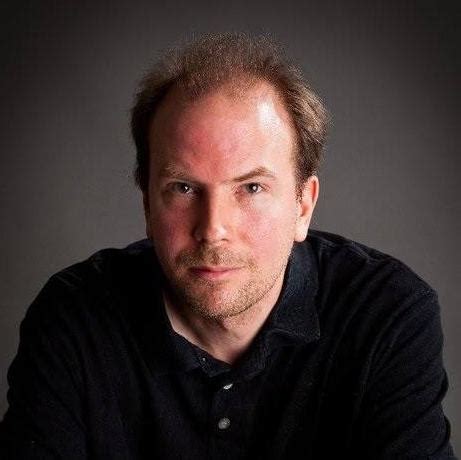A Quote by David Levithan
Maybe relationships could have fractals, too. And maybe the sense of loss was when you're becoming a fractal of what you once were to each other.
Related Quotes
You existed. You existed now as a fractal. Definition: A fractal is generally a rough or fragmented geometric shape that can be broken into parts, each of which is (at least approximately) a reduced-size copy of the whole. Maybe I was a fractal. Maybe the photographer was a fractal. Maybe we were all fractals.
I wanted to tell her everything, maybe if I'd been able to, we could have lived differently, maybe I'd be there with you now instead of here. Maybe... if I'd said, 'I'm so afraid of losing something I love that I refuse to love anything,' maybe that would have made the impossible possible. Maybe, but I couldn't do it, I had buried too much too deeply inside me. And here I am, instead of there.
Maybe you’ll marry, maybe you won’t, maybe you’ll have children, maybe you won’t, maybe you’ll divorce at 40, maybe you’ll dance the funky chicken on your 75th wedding anniversary…what ever you do, don’t congratulate yourself too much or berate yourself either – your choices are half chance, so are everybody else’s.
Maybe they would look at each other and feel some odd yearning, but neither of them would know why. They would want to stop, but they would be embarrassed, and neither would know what to say. They would go their separate ways. Who knew? Maybe that happened every day to people who'd once loved each other.
He read a lot. He used a lot of big words. I think maybe part of what got him into trouble was that he did too much thinking. Sometimes he tried too hard to make sense of the world, to figure out why people were bad to each other so often. A couple of times I tried to tell him it was a mistake to get too deep into that kind of stuff, but Alex got stuck on things. He always had to know the absolute right answer before he could go on to the next thing.
Each practitioner thinks there's one magic way to get a machine to be smart, and so they're all wasting their time in a sense. On the other hand, each of them is improving some particular method, so maybe someday in the near future, or maybe it's two generations away, someone else will come around and say, "Let's put all these together," and then it will be smart.




































